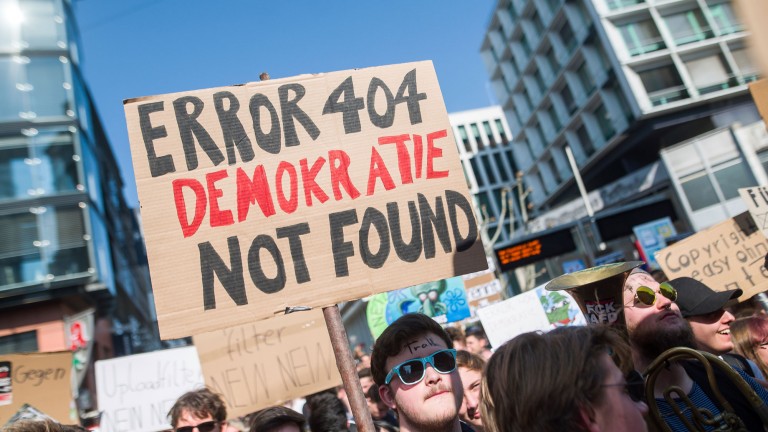The news: Governments worldwide are increasingly using social media to manipulate elections and spy on citizens, think tank Freedom House has warned in its latest report. It’s the ninth year in a row that global internet freedom has dropped, according to its assessment of 65 countries.
A new menace: Disinformation—false information spread deliberately to deceive people—helped distort elections in 26 of the 30 countries studied that had national votes in the last year. Outright censorship and internet shutdowns persist, but many governments find it more effective to employ individuals to spread online propaganda, facilitated by social-media platforms like Facebook, Twitter, Instagram, and YouTube, the report said.
Some figures: Of the 65 countries studied, half had an overall decline in their internet freedom score, while just 16 registered improvements. A majority were affected by advanced social-media surveillance programs, with law enforcement in 47 countries arresting people for political, social, or religious speech online.
A glowing example: Iceland was the world’s best protector of internet freedom, having registered no cases against users for online expression over the last year. It has near-universal connectivity, strong protections for users’ rights online, and limited restrictions on content, the report noted. Estonia and Canada took second and third place, respectively. Unsurprisingly, China was the worst performer.
What can be done? “The future of internet freedom rests on our ability to fix social media,” Freedom House research director Adrian Shahbaz said. Since all the big tech companies are based in the US, the report says solutions must come from the US, too. The report recommends that lawmakers improve transparency and oversight of online political ads, enact robust data privacy legislation, and strictly regulate the use of social-media surveillance tools by law enforcement, among other measures.
A timely warning: The report comes as Facebook is facing calls to change its policy of allowing politicians to advertise lies on its platforms. It’s come under renewed pressure thanks to Twitter’s decision to ban political ads last week. There are concerns in the UK, for example, that Google, Facebook, and other tech platforms will be used by bad actors to manipulate the upcoming general election on December 12. Freedom House has a stark warning: without action, the situation is likely to only get worse.
Sign up here for our daily newsletter The Download to get your dose of the latest must-read news from the world of emerging tech.

